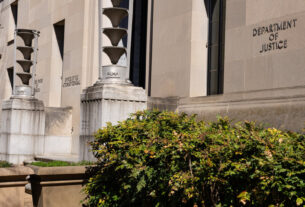President Trump is poised to embark on an economic experiment that has never been tested as he prepares to carry out an agenda of tax cuts and tariff increases while interest rates are high and prices remain elevated.
As he resumed the presidency on Monday afternoon, Mr. Trump has pledged to move quickly to enact universal tariffs, cut regulations that will increase domestic energy production and push Congress to pass another round of tax cuts.
Incoming administration officials said Mr. Trump would sign a blitz of executive orders on Monday that would open up oil and gas drilling in Alaska, end Biden administration policies that encourage the adoption of electric vehicles and take an “all of government approach” to curbing inflation.
Mr. Trump’s early moves reflect the fact that the U.S. economy is in a much different place than the one he inherited in his first term eight years ago, when inflation was low amid a long post-recession economic expansion.
Mr. Trump will instead oversee an economy that many economists expect to slow this year and next. Inflation has eased, but consumer prices are more than 20 percent higher than they were when he left office. The national debt exceeds $36 trillion, and a fight in Congress over raising the nation’s borrowing cap looms this year.
Economists remain skeptical that Mr. Trump’s mix of policies will have their intended effects.
“We expect the incoming Trump administration’s policies to have a mildly stagflationary impact on the economy,” Paul Ashworth, the chief U.S. economist at Capital Economics, wrote in a research note.
He forecast that Mr. Trump’s tariffs could spur inflation, which is expected to fall close to 2 percent this year, to rebound back to about 3 percent. Growth could slow to 1.5 percent from the 2024 rate of about 2.5 percent, Mr. Ashworth predicted.
The fight against inflation is not over. The Consumer Price Index rose 0.4 percent from November and was up 2.9 percent from a year earlier, the Labor Department said last week. It was the fastest one-month increase in overall prices since February, signaling that the Federal Reserve had more work to do.
Some Fed officials have indicated they are concerned that Mr. Trump’s policies could lead inflation to accelerate again.
Advisers to Mr. Trump remain undeterred by skeptics of his plans. They believe that rolling back regulations and cutting taxes will cause U.S. economic output to surge and deficits to shrink.
“Changing the growth trajectory upward changes the trajectory of the nation,” Scott Bessent, Mr. Trump’s pick for Treasury secretary, said on Sunday at an event hosted by the conservative group Unleash Prosperity.
One of the biggest wild cards facing the U.S. economy is Mr. Trump’s tariffs and how the rest of the world responds.
He has called for blanket tariffs of 10 percent on imports and even higher tariffs on goods from certain countries. While it is possible that these would be phased in and include exemptions, uncertainty over how other countries might retaliate clouds the outlook.
Mr. Bessent and Stephen Miran, Mr. Trump’s choice to lead his Council of Economic Advisers, have argued that broad-based tariffs will not cause inflation because U.S. tariffs tend to cause the value of the dollar to rise, offsetting the duties by making imports effectively cheaper.
Many economists, however, believe that tariffs are taxes that are passed on to consumers. During the trade wars of Mr. Trump’s first term, much of the effects of his tariffs were felt when other countries raised trade barriers of their own, making exports of products such as farm goods and whiskey more expensive in markets abroad.
“No retaliation is the key unspoken — and unrealistic — assumption being made here,” Ernie Tedeschi, the former chief economist in the Biden administration’s Council Economic Advisers, wrote on social media last week after Mr. Bessent defended tariffs.
Despite enthusiasm among Republicans for Mr. Trump’s economic agenda, some lawmakers continue to have qualms about new taxes on imports.
“I have my concerns,” Senator Ron Johnson, Republican of Wisconsin, said at the Unleash Prosperity event. “Tariffs are certainly a double-edged sword.”
Despite Mr. Trump’s pledge as a candidate last year that if he won “inflation will vanish completely,” he has calibrated those promises since his victory.
He acknowledged in an interview last month that getting grocery prices to go down is “very hard.” Vice President JD Vance said this month that the goal was to “stabilize” prices.





